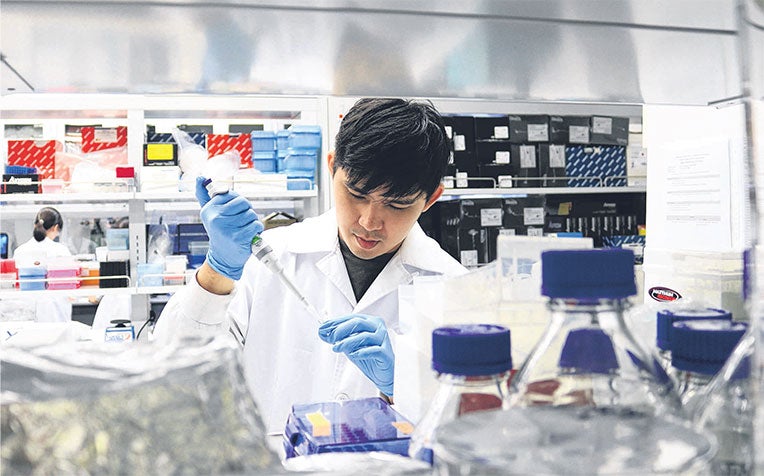
primarily uses genetic testing to customise medical treatment for patients by flagging the potential toxicity and side effects of drugs.
Though she had been on the same medication to treat her autoimmune disease of lupus for the last 10 years, Ms Esther Lee, 31, still found it a problem to adjust the doses for the ideal control.
Lupus is a disease in which the body attacks its own organs. While her doctor would try to work out the correct dosage, Ms Lee’s medication would still occasionally cause her white blood cell count to drop so low that she had to stop taking it or risk an infection.
However, a blood test that became available in recent years, NUDT15, solved the problem when paired with another existing test. Three months ago at Tan Tock Seng Hospital (TTSH), the tests determined that Ms Lee is more sensitive to the medication and so does not require as large or as frequent a dose.
“It’s better because now we know what the best dosage for me is,” said the operations executive. “I’m happier with the results.”
More patients like Ms Lee are benefiting from personalised medicine, also called precision medicine, which primarily uses genetic testing to customise medical treatment for patients by flagging the potential toxicity and side effects of drugs. It has evolved within the last eight years in the United States, and started catching on in Singapore about four years ago.
Last month, healthcare bioanalytics firm Invitrocue and A*Star’s Genome Institute of Singapore opened a joint laboratory in Biopolis to conduct research on personalised medicine for cancer treatment.
Dr Leong Khai Pang, clinical director of the personalised medicine service at TTSH, said the “science is still new” but doctors remain hopeful.
“With personalised medicine, we want to be able to tell more precisely what the disease outcome will be, so we don’t waste time in treating it,” said the senior consultant at the rheumatology, allergy and immunology department.
Since last October, TTSH has offered patients personalised medicine as an option for diseases that have an array of treatments, such as cancers of the breast, lung, colon and blood. Around 300 patients have used the service, with the cost ranging from $50 to $200, depending on the kind of test needed.
Dr Leong said a genetic test for rheumatoid arthritis is in the works, and could be available in the next three to five years. It could predict the outcome of the disease for individuals and how well they respond to medication.
Other hospitals such as KK Women’s and Children’s Hospital (KKH) and the Singapore General Hospital (SGH) have also started using personalised medicine.
At KKH, children with epilepsy and nerve pain are screened for a gene pattern that is strongly associated with severe adverse reactions to carbamazepine, a medication used to treat paediatric epilepsy and other neurological conditions.
More than one-tenth of the 360 patients tested positive for the gene and were found to be unsuitable for the drug. Severe adverse drug reactions include widespread blistering and rashes of the skin, as well as inflammation of the liver.
The test costs around $50 with subsidies, while its non-subsidised rate is around $200. Between 75 and 100 cases of childhood epilepsy are diagnosed at KKH every year.
Blood and tissue sample tests used to check if patients have inherited colorectal cancer have been introduced at SGH over the last two years, with around 500 patients opting for the tests.
In March, Health Minister Gan Kim Yong said in response to a query in Parliament that his ministry “has started the process of drafting standards for the provision of clinical genetic testing services in precision medicine”.
These standards will help to address issues including pre- and post-test counselling, the competency of personnel involved in the delivery of the services, as well as appropriateness in ordering genetic tests and interpretation of test results, he added.
Contributed by














 Get it on Google Play
Get it on Google Play